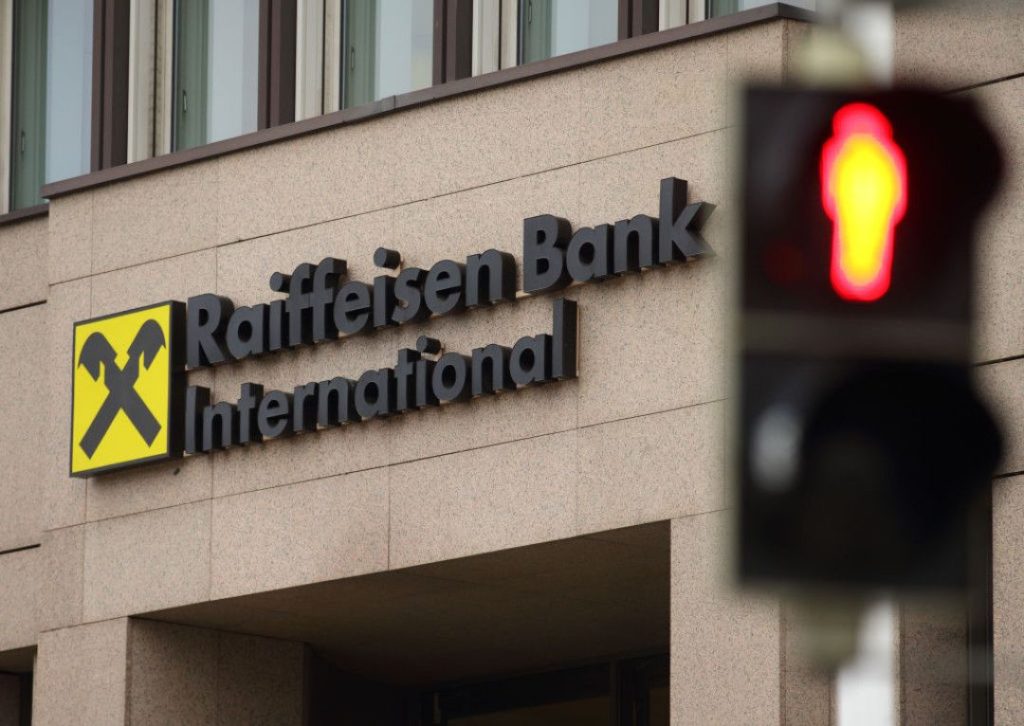Austrian authorities have warned Raiffeisen Bank International (RBI) against pursuing a business deal with Russian oligarch Oleg Deripaska. The Vienna-based bank group, the largest Western bank remaining in Russia, has faced increasing pressure to scale down its activities in the country since Russia’s full-scale invasion. Deripaska, who was sanctioned by the U.S. in 2018 and the U.K. in 2022, had his business assets nationalized by Ukraine in February 2023. Raiffeisen had been interested in buying a 1.5 billion euro stake in the construction company Strabag, linked to Deripaska. However, Austrian central bank officials cautioned against the deal, citing potential violations of sanctions and backlash from the U.S. The European Parliament also sent a letter to Austrian officials urging them to pressure Raiffeisen to exit Russia, stating that the bank’s activities in the country contribute to Russia’s economy and budget, funding military aggression against Ukraine.
In a separate incident, Austrian Chancellor accused Moscow of attempting to undermine the democratic political process in Austria using a Russian spy and a political party he was associated with. This revelation came on April 18, highlighting the ongoing concerns about Russia’s interference in other countries’ internal affairs. With Raiffeisen Bank International caught in the crossfire of international politics and facing scrutiny over its business deals involving sanctioned individuals like Deripaska, the situation highlights the complexities and challenges faced by financial institutions operating in regions of geopolitical tension. The pressure on Raiffeisen to comply with sanctions and withdrawal requests from European regulators underscores the need for banks to carefully navigate their relationships with entities or individuals linked to sanctioned activities.
The ongoing conflict between Russia and Ukraine has created a ripple effect in the global financial sector, with businesses and banks facing increasing scrutiny over their ties to sanctioned Russian individuals and entities. The case of Raiffeisen Bank International seeking to acquire a stake in a company linked to Deripaska demonstrates the challenges of conducting business in regions affected by sanctions. The warnings from Austrian authorities and the European Parliament reflect growing concerns about the role of financial institutions in perpetuating conflicts or supporting aggressors through their operations. As the situation evolves, banks like Raiffeisen must align their activities with international sanctions and regulatory requirements to avoid reputational damage and legal repercussions.
The involvement of Russian oligarchs like Oleg Deripaska in business dealings with Western banks raises questions about ethical considerations and compliance with sanctions regimes. The financial sector plays a crucial role in enforcing international sanctions and preventing illicit activities that could fund military aggression or destabilize regions affected by conflicts. In the case of Raiffeisen Bank International, the scrutiny over its proposed deal with Deripaska-linked companies underscores the need for diligence in conducting due diligence and risk assessments when engaging in business transactions. By adhering to strict compliance standards and transparency measures, banks can mitigate the risks associated with dealing with individuals or entities under sanctions and contribute to the broader efforts to uphold global security and stability.
The allegations of Moscow’s attempts to undermine democracy in Austria through the actions of a Russian spy and a political party highlight the broader implications of foreign interference in domestic affairs. The use of covert tactics to influence political processes in other countries poses a threat to democratic institutions and undermines the sovereignty of states. As governments and financial institutions grapple with the challenges posed by foreign actors seeking to manipulate or disrupt their operations, the need for enhanced cybersecurity measures and counterintelligence efforts becomes increasingly important. By remaining vigilant and proactive in addressing threats to democracy and national security, countries can safeguard their democratic systems and prevent external actors from exerting undue influence on their political processes.
In conclusion, the warning issued to Raiffeisen Bank International by Austrian authorities regarding its potential business deal with Russian oligarch Oleg Deripaska underscores the complexities and challenges faced by financial institutions operating in regions affected by geopolitical tensions and international sanctions. The involvement of sanctioned individuals like Deripaska in business transactions raises ethical considerations and compliance risks for banks, highlighting the importance of conducting thorough due diligence and adhering to regulatory requirements. As governments and financial regulators intensify their efforts to combat illicit financial activities and prevent funding for military aggression, banks must play a critical role in upholding global security and stability. By promoting transparency, accountability, and adherence to international sanctions, banks can contribute to the broader objective of preventing foreign interference in democratic processes and safeguarding the integrity of the global financial system.


